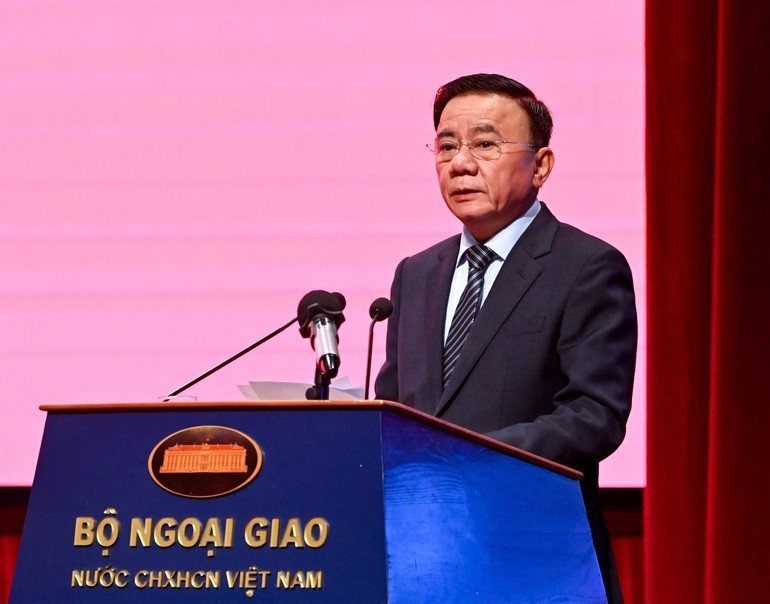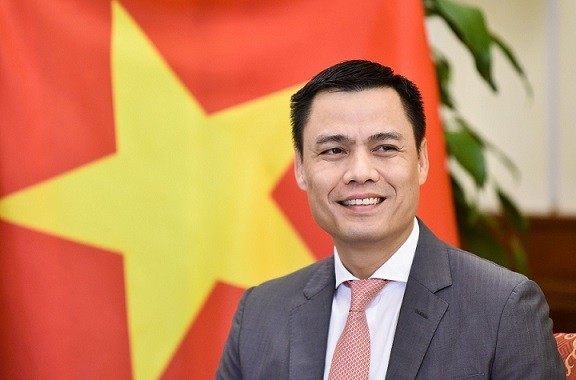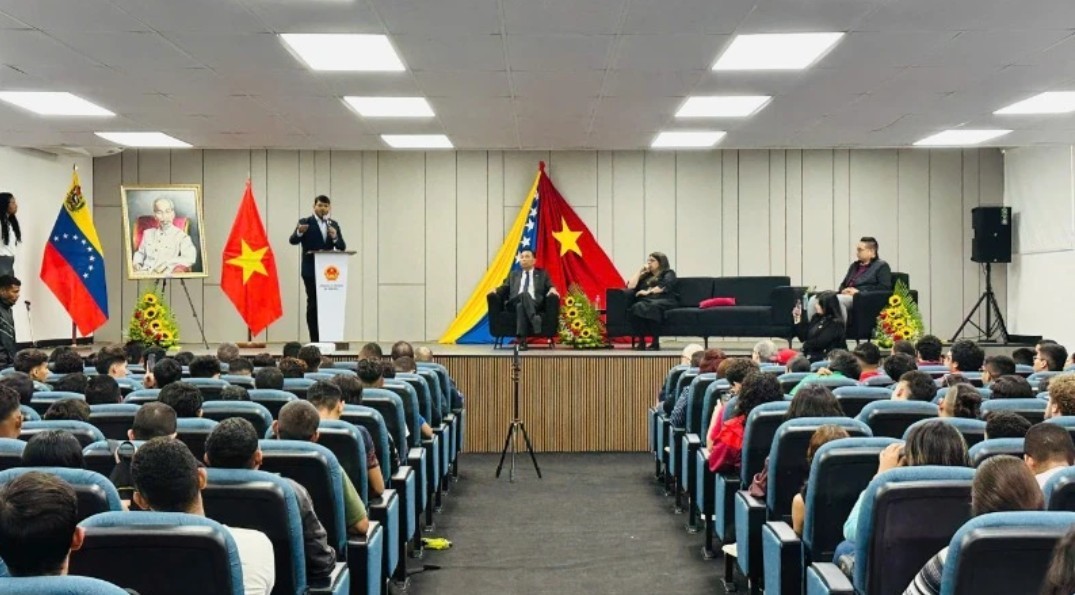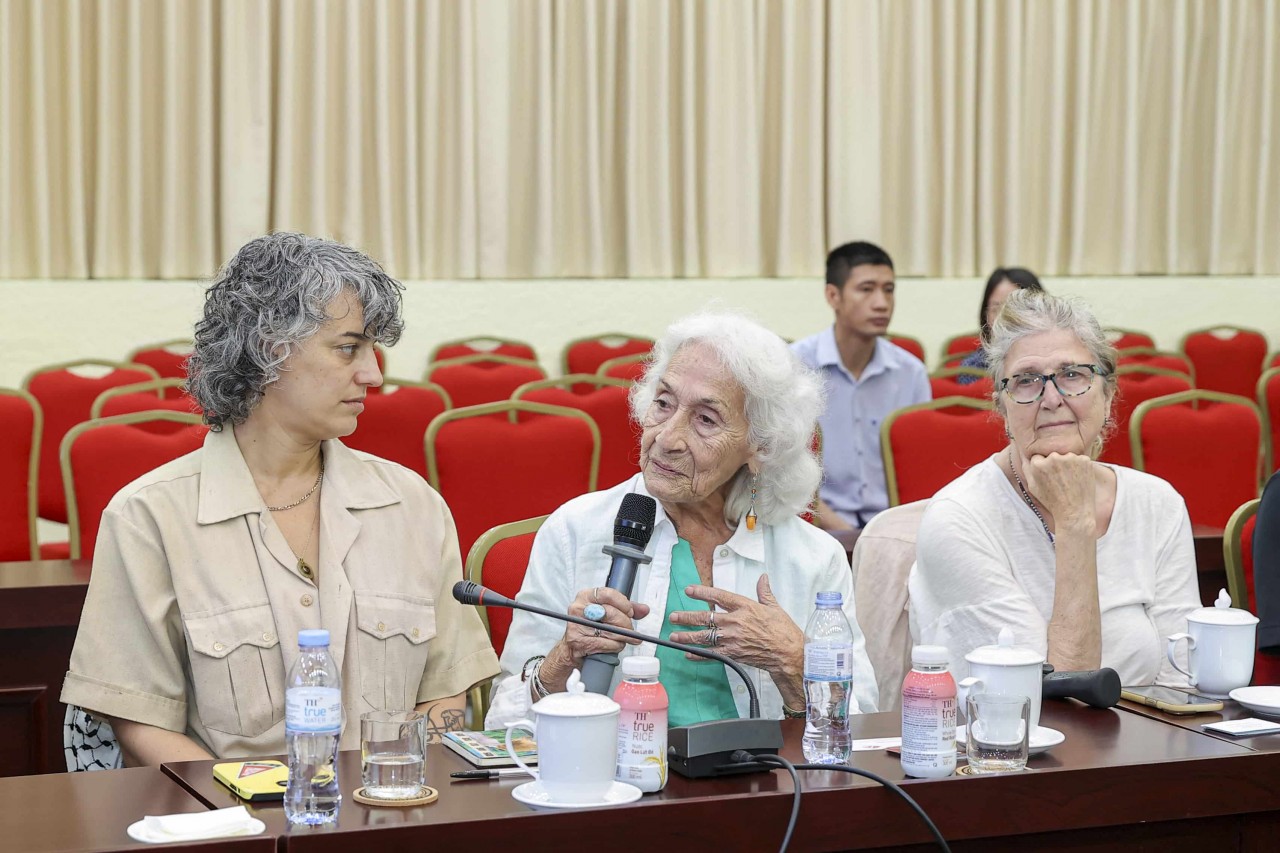Vietnamese Diplomacy’s Contribution to the Liberation of the South and National Reunification – Enduring Historical Lessons
| Looking Back 2022 Ebullient Year of the Vietnamese Diplomacy | |
| Geneva Accords – a Remarkable Milestone in Vietnamese Diplomacy |
The victory of the Vietnamese people in the cause of Southern liberation and national reunification “will forever be recorded in our nation’s history as one of the most brilliant pages, a shining symbol of the complete triumph of revolutionary heroism and human intellect, and will enter world history as one of the greatest feats of the 20th century.”
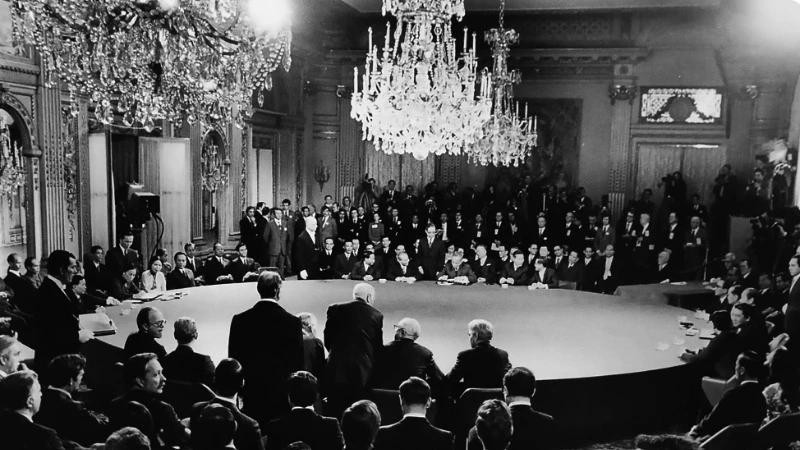 |
| The success of the Paris Conference played a crucial role in the historic Spring Victory of 1975. |
Vietnamese diplomacy was honoured and proud to have contributed to that immense national victory. Over the past 80 years, history has shown that in every great triumph of the country, victories on the battlefield have been inseparable from successes at the negotiating table.
Just as the historic victory at Dien Bien Phu paved the way for outcomes at the Geneva Conference, the success of the Paris Conference significantly contributed to the historic 1975 Spring Victory. The diplomatic achievements of this period left behind invaluable lessons that remain valuable to this day.
Diplomacy – A vital strategic front
As the resistance war against the United States began, under the sacred directive of President Ho Chi Minh, “No matter how arduous it may be, our people will certainly achieve complete victory. Our country will certainly be unified. Our fellow countrymen in the North and the South will certainly be reunited,” the paramount national interest was the liberation of the South and the reunification of the country.
Facing a situation where we had to “use the weak to fight the strong,” the Party determined that combining national strength with the strength of the times was a decisive factor. This included the power of great national unity from North to South, solidarity with Laos and Cambodia, support from socialist countries, especially the former Soviet Union and China, and the backing of progressive humanity around the world.
In that spirit, the 13th Party Central Committee Conference 1967 affirmed that “diplomatic struggle does not merely reflect the battlefield, but under current international conditions and the nature of the war between us and the enemy, diplomacy plays an important, proactive and active role.” In 1969, the Politburo issued a Resolution recognising diplomacy as a strategic front of great significance.
First, diplomacy worked hand-in-hand with military and political struggles, forming the strategy of “fighting while negotiating” and mobilising the combined strength of the nation. Military and political struggle laid the foundation for diplomatic negotiation, while diplomacy contributed to amplifying the victories of military and political struggle.
Through flexible and skilful tactics, we compelled the United States to enter negotiations from 1969 onwards, opening a new front in the struggle for gradual victory. The intense battles of wits at the negotiating table with a global superpower tested and refined the mettle and intellect of revolutionary Vietnamese diplomacy. Outstanding diplomats such as Le Duc Tho, Xuan Thuy, and Nguyen Thi Binh became symbols of Vietnam’s resolute, brave, yet flexible diplomacy.
The art of “fighting and negotiating” in diplomacy reached its peak with the signing of the Paris Agreement on ending the war and restoring peace in Vietnam. Alongside victories at Khe Sanh, the Mau Than Tet Offensive, and others, diplomatic successes forced the US to de-escalate and sign the Agreement in January 1973, achieving the goal of “driving out the Americans” and paving the way for “toppling the puppet regime.”
As per the Agreement, the US was forced to withdraw all troops and weapons from Southern Vietnam, creating favourable conditions for revolutionary armed forces, political organisations, and mass movements to consolidate. This changed the battlefield balance in favour of the revolution, creating the opportunity that the Politburo identified in 1974: “Apart from this opportunity, there will be no other” for complete Southern liberation and reunification.
Second, diplomacy garnered the strength of three revolutionary streams, mobilising the support of socialist countries and a broad international front in support of the just struggle of the Vietnamese people.
President Fidel Castro’s famous words, “For Vietnam, Cuba is willing to shed even its blood,” became a powerful symbol of material and spiritual support from fraternal socialist countries. Alongside the will and determination of our military and people, this support contributed to great victories on the battlefield.
Through their prestige and diplomatic efforts, President Ho Chi Minh and other veteran leaders not only secured international support but also helped strengthen unity and cooperation among socialist countries. The Vietnamese revolution became a unifying banner for the socialist bloc, even during moments of rift or discord. Moreover, with the spirit of “helping our friends is helping ourselves,” we forged bonds of solidarity and a struggle alliance with Laos and Cambodia, contributing to each country’s revolutionary success.
Vietnamese “heart diplomacy” also won over global public opinion with its righteousness, justice, and humanity, creating a vast front of popular support for Vietnam. The word “Vietnam” became a symbol of the anti-colonial liberation movement, drawing support even from within the US, and from world-renowned politicians, scholars, and public figures.
Millions across five continents, including Americans, took to the streets in anti-war protests. Volunteer movements to fight in Vietnam, donate blood, raise funds, and spread worldwide. Leaders like Swedish Prime Minister Olof Palme joining demonstrations, or peace activists like Norman Morrison self-immolating in protest, became symbols of the global struggle for peace and justice.
Third, imbued with the spirit of “peace and amity,” diplomacy expanded the country’s foreign relations and laid the foundation for reconciliation with former warring nations. Amidst the flames of war, we continuously expressed a desire to build friendly and cooperative ties with all nations involved in the Vietnam conflict, including the United States, showing a willingness to “roll out the red carpet” for a US withdrawal.
Through goodwill gestures such as humane treatment and repatriation of prisoners of war and facilitation of the evacuation of American citizens in the war’s final days, Vietnam’s peaceful and humane diplomatic approach demonstrated a sincere commitment to peace, contributing to the eventual normalisation of relations with many countries.
Alongside our just struggle, diplomacy championed President Ho Chi Minh’s principle of making as few enemies and as many friends as possible, thereby expanding relations not only with socialist countries and newly independent former colonies but also with Western capitalist nations.
Following the victory of the Paris Agreement, Vietnam established diplomatic relations with many developed Western countries such as Japan, the UK, France, Italy, Canada, Belgium, and the Netherlands, expanding international recognition of the Democratic Republic of Vietnam.
Fourth, as President Ho Chi Minh once said, “To succeed, one must foresee everything.” Strategic research and forecasting in diplomacy greatly supported both political and military fronts. Diplomacy accurately assessed the global landscape, the interests and positions of friends and foes alike, enabling the Party leadership to make timely and effective decisions at every stage. During the fight-and-negotiate phase, diplomacy intensified political and public opinion offensives, forcing the US to halt bombing in the North and accept strategic shifts, leading to negotiations with Vietnam.
History shows that each strategic forecast held power equal to an army division—diplomacy contributed significantly to military victories. In major campaigns such as the 1968 Mau Than Tet Offensive and the historic Ho Chi Minh Campaign, diplomatic efforts helped correctly assess enemy situations and make accurate military predictions.
Especially during the 1975 Spring General Offensive and Uprising, diplomacy correctly assessed the difficulties faced by the Saigon regime and the direction of US policy, accurately forecasting that the US would not re-engage militarily.
Lessons for a rising era
Vietnam’s young diplomacy was born and matured during nine years of resistance against the French, and was forged through twenty years of resistance against the Americans. The glorious achievements at the Geneva Conference in 1954 and the Paris Conference in 1973 represented the crystallisation of wisdom during the most challenging periods of Vietnam’s revolutionary history. These lessons, tested and tempered when national interests were severely threatened, still hold profound value in the current phase of national development.
Epochal transformations require revolutionary decisions. As Party General Secretary To Lam stated, in this new era – the era of national rising – Vietnam’s diplomacy must reach new heights to fulfil its glorious new responsibilities, living up to its role as a pioneering force and an integrated component of the Vietnamese revolution. Guided by this spirit, Vietnam’s diplomacy will continue to uphold the timeless lessons learned during the struggle for the liberation of the South and national reunification as it advances into the era of national rising.
First, the lesson of ensuring the highest interests of the nation and people. Throughout the resistance, diplomacy absorbed President Ho Chi Minh’s message at the 3rd Diplomatic Conference in 1964: diplomacy must always serve the interests of the people. Today, national interest remains the compass guiding all actions and the foremost criterion for determining cooperation and struggle in diplomacy.
At the same time, in today’s interdependent world, ensuring the highest national interest must also be based on equality, cooperation, mutual benefit, and the shared pursuit of peace, national independence, democracy, and social progress, grounded in the principles of the UN Charter and international law.
Second, the lesson of combining internal strength with external resources, combining national power with the power of the times. In the past, Vietnam’s “heart-diplomacy” mobilised vast material and spiritual support from the progressive global community.
In the current revolutionary phase, “development-serving diplomacy” must tap into favourable external conditions and resources, including trends of peace, cooperation, and development; the momentum of a fair, multi-polar, multi-centred world order based on international law; and emerging global trends such as green economy, digital economy, and circular economy, along with breakthroughs from scientific and technological revolutions, including artificial intelligence and semiconductors.
Diplomacy must take the lead in forging cooperation with leading nations and global corporations; unlocking capital and knowledge from innovation hubs; and elevating Vietnam’s position in global production and supply chains.
Third, placing diplomacy in the role of a “critical, regular, and pioneering” force in safeguarding national interests. During wartime, the Party made the strategic decision to consider diplomacy a “front” alongside politics and the military.
Today, as the world rapidly changes with increasing competition and conflict, the Party has determined that diplomacy – along with national defence and security – must play a “critical and regular” role in protecting the country early and from afar, firmly safeguarding independence, sovereignty, and territory, fostering a peaceful and stable international environment, and securing favourable conditions and resources for national development.
Notably, diplomacy must elevate and deepen strategic frameworks with partners, opening new space for security and development.
Fourth, the lesson of integration – placing the country in the mainstream of the times. In the past, integration meant aligning the nation with the three revolutionary currents and the common cause of the socialist bloc. Today, it means comprehensive, deep international integration, making global integration a driver of development.
Accordingly, the recent Resolution No. 59/NQ-TW on international integration in the new context, together with Resolution 18 on organisational restructuring and Resolution 57 on science, technology, and digital transformation, forms a “strategic trio” of the Party in this new revolutionary phase. Crucially, integration must become a national cause – a “conscious culture” embraced by the people, businesses, and localities, who are also the main actors, core force, and beneficiaries of international integration.
Building on the tradition of previous generations, today’s diplomacy has shaped a broad and favourable external environment for defending and building the country. Vietnam has established diplomatic relations with 194 countries, strategic and comprehensive partnerships with 34 nations, and is an active member of more than 70 international organisations. The country has shifted from mere economic integration to comprehensive and deep international integration, playing a core and leading role in strategic mechanisms aligned with national interests, while making meaningful and responsible contributions to global issues.
In every great victory of the nation, diplomacy has played its part. In the era of national liberation, diplomacy was a front that contributed to the great victory of Spring 1975. In the era of renovation, diplomacy spearheaded efforts to break the embargo and integrate Vietnam into the international community, ushering in a new phase of national development.
With timeless ideology, the lessons learned from the struggle for the liberation of the South and national reunification continue to light the way for diplomacy as it enters a new era – one of wealth and prosperity. Diplomacy will continue to serve the nation and the people, ensuring the highest interests of the country in this new context.
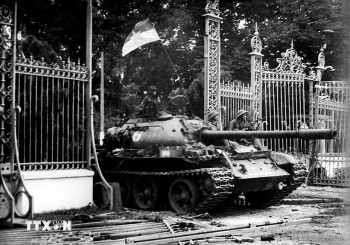 | 50 Years of National Reunification: Inspiring Revolutionaries Worldwide President of the Chile-Vietnam Friendship Association, Abarzua, emphasized that Vietnam not only achieved independence and national reunification but also demonstrated to the world the importance ... |
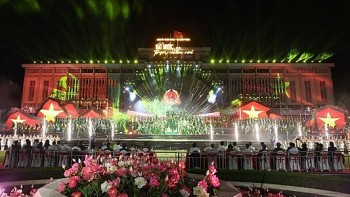 | Party Chief Attends Grand Art Performance Celebrating National Reunification Party General Secretary To lam, who is also Secretary of the Central Military Commission, attended a grand art performance programme held in Ho Chi Minh ... |
Recommended
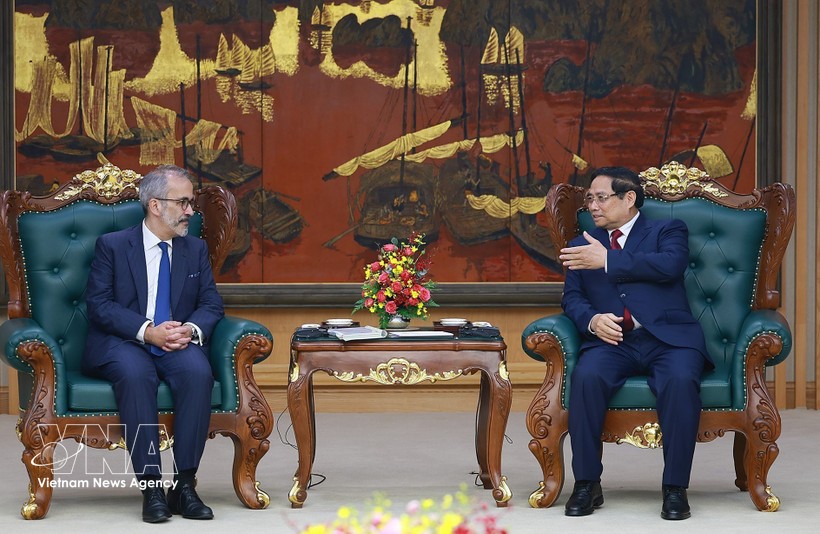 National
National
Vietnam News Today (Feb. 28): Vietnamese, Portuguese Foreign Ministers Hold Talks in Hanoi
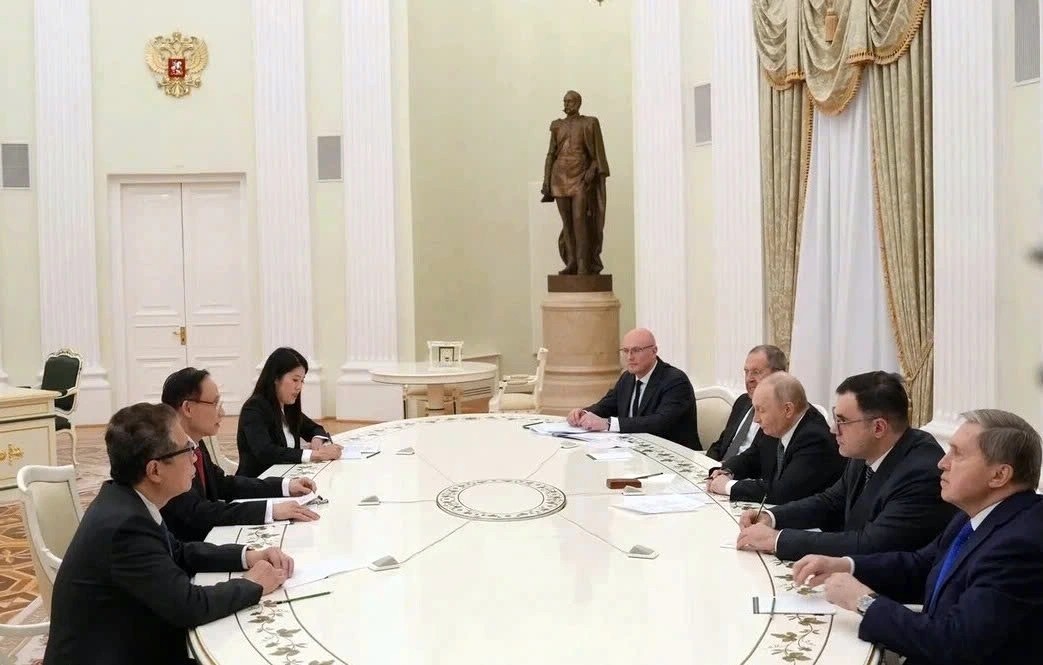 National
National
Vietnam News Today (Feb. 26): Russia Backs Stronger Strategic Ties With Vietnam Following Party Congress
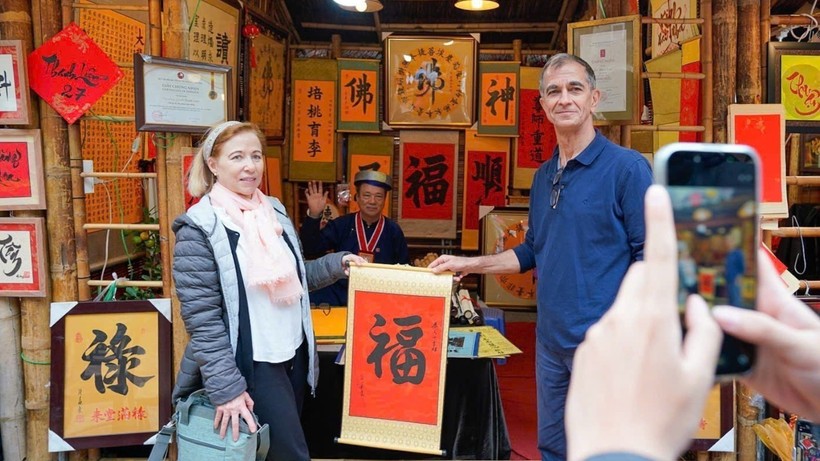 National
National
Vietnam News Today (Feb. 25): Tet Tourism Season Sees Strong Nationwide Growth
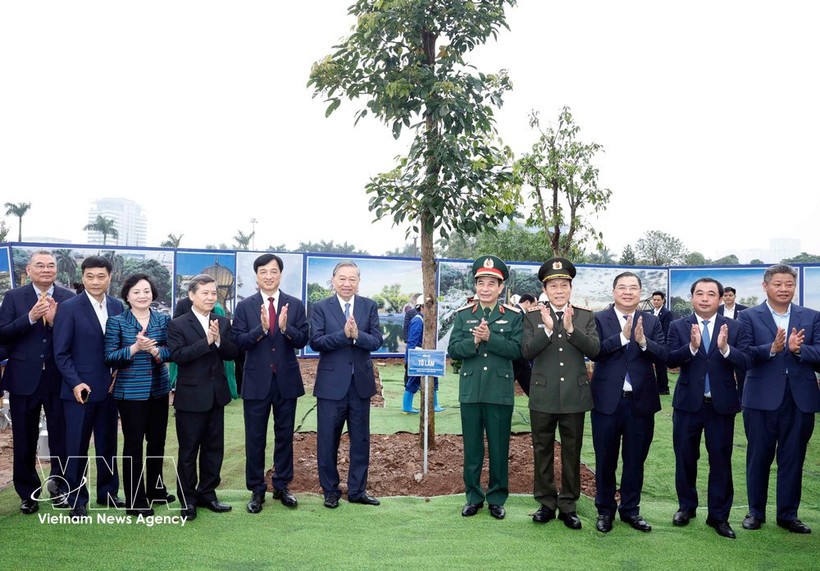 National
National
Party Leader Attends Launch of Tree Planting Festival in Hanoi
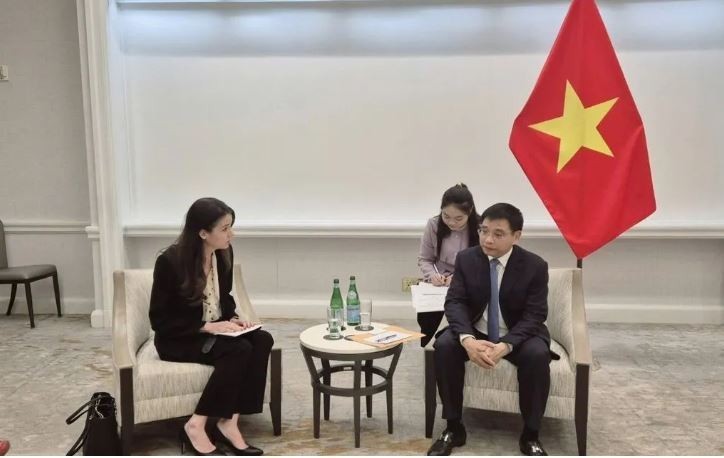 National
National
Vietnam News Today (Feb. 24): Vietnam Considers Intel Long-term Strategic Partner in Semiconductor Industry
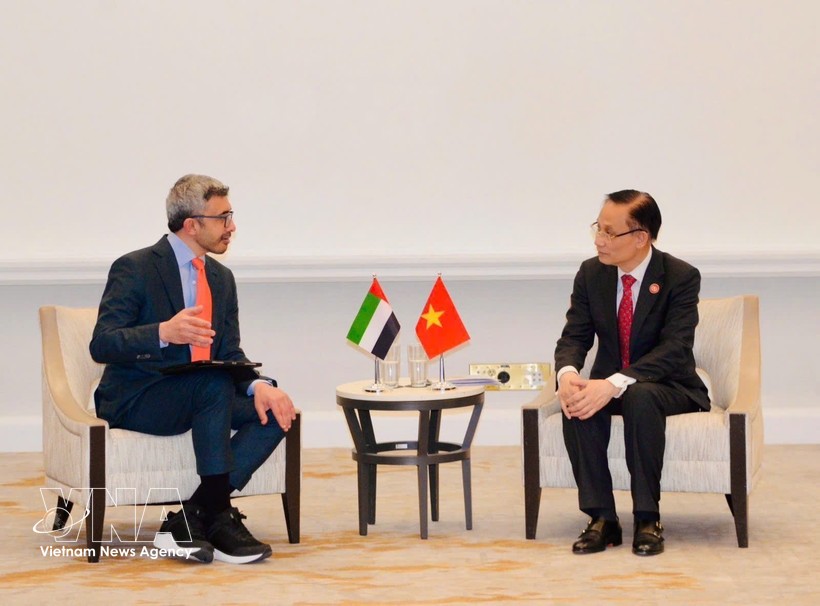 National
National
Vietnam News Today (Feb. 22): Vietnamese FM Meets Counterparts of UAE, Egypt and Türkiye
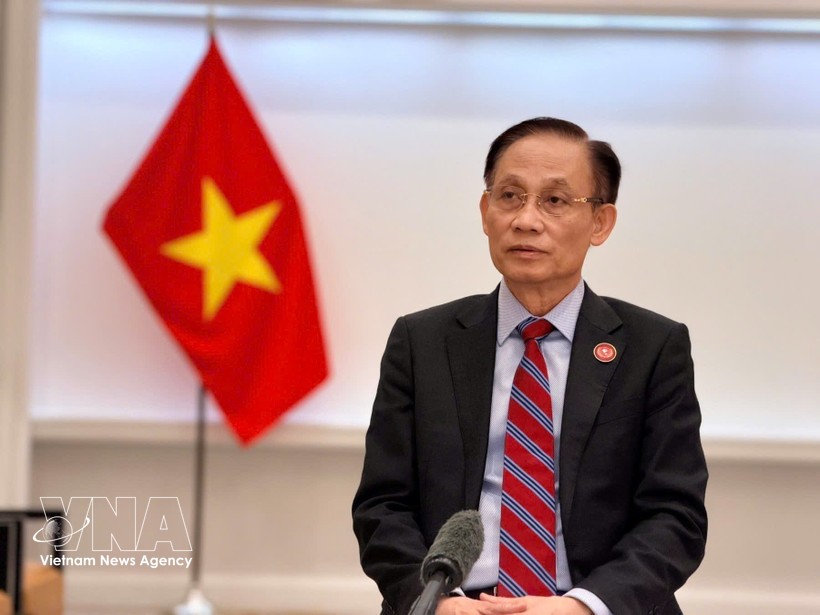 National
National
Party Chief’s US Trip Marks Milestone in High-level Multilateral Diplomacy: FM
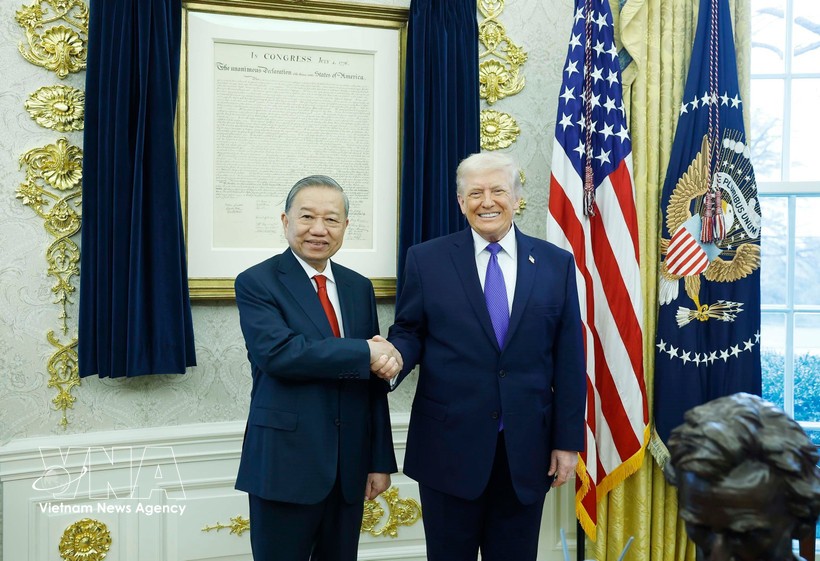 National
National

